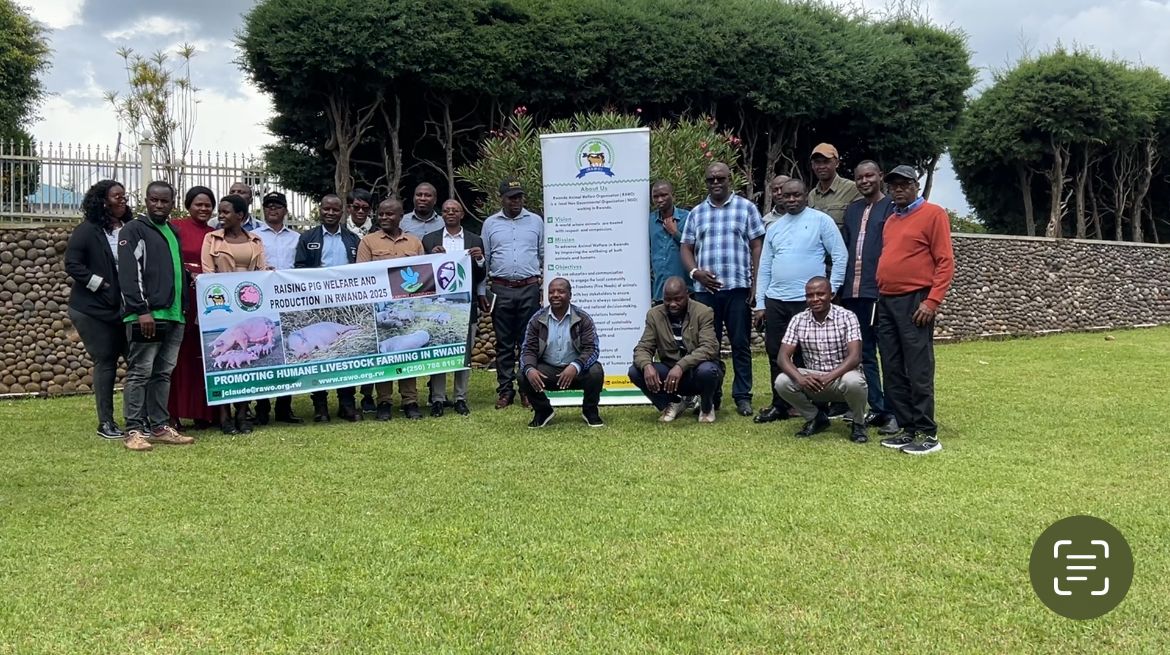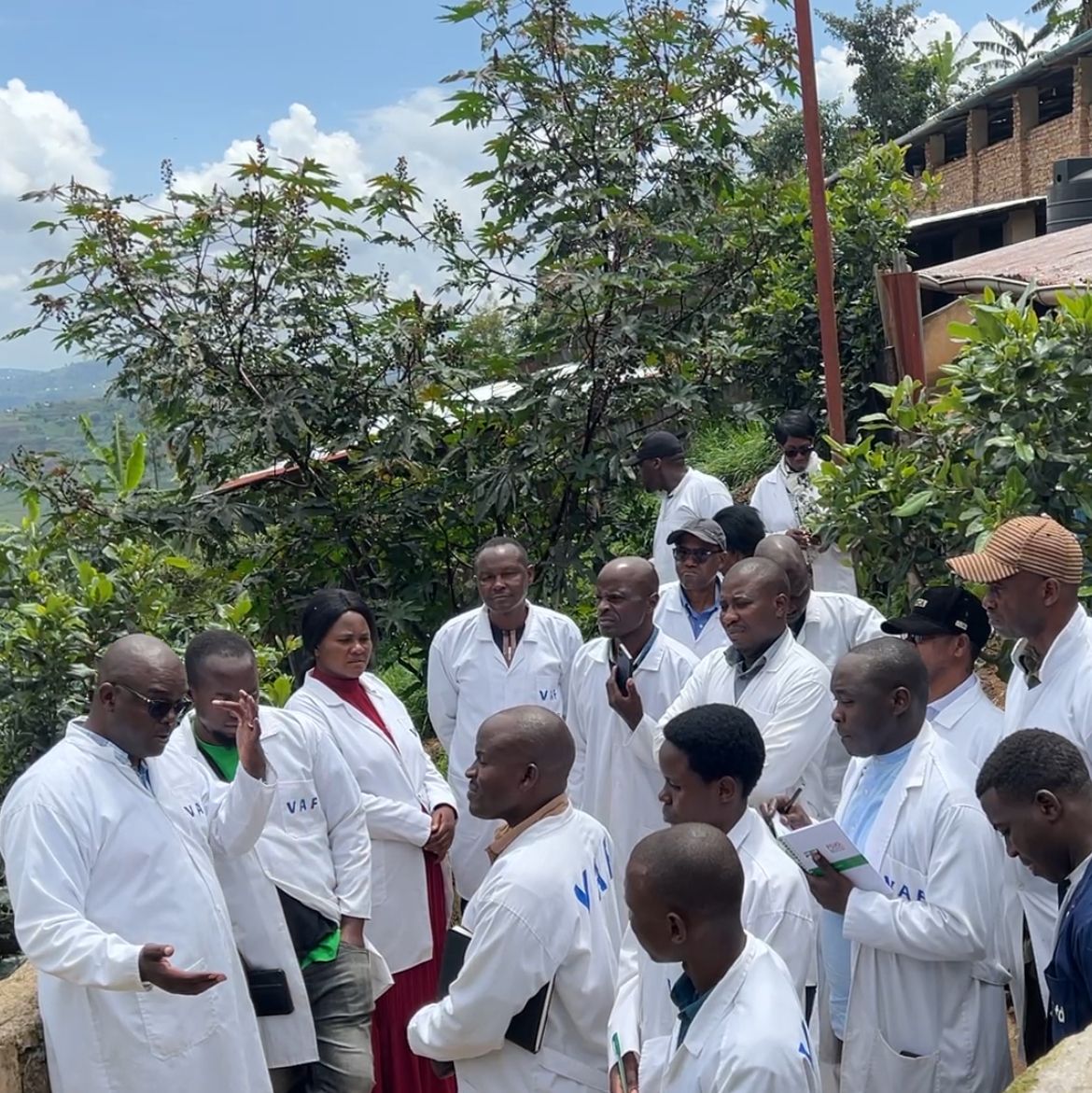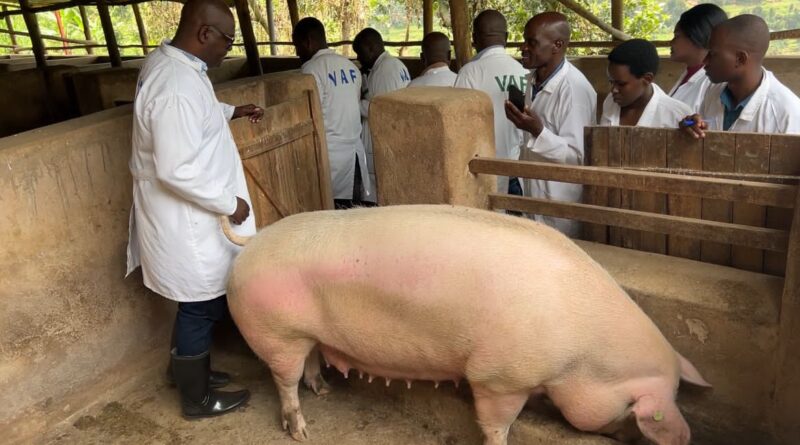Gicumbi: Pig Farmers Reminded of Five Key Aspects to Consider
Pig farmers from various regions across Rwanda participated in a study tour in Gicumbi District
, aimed at enhancing their knowledge and advancing professional pig farming practices.
The visit, conducted on April 2, 2025, was organized to strengthen skills and promote the development of pig farmers, fostering mutual support within the pig farming association.
The training brought together members of the Rwanda Animal Welfare Organization (RAWO), in collaboration with the pig farmers’ association, demonstrating a shared commitment to improving knowledge and promoting sustainable pig farming practices.
Currently, Rwanda has more than five pig breeds, each with distinct advantages for different farming objectives. Some breeds are preferred for meat production, while others excel in breeding, both contributing to the growth of the pig farming industry.
Participants from ten districts across Rwanda acknowledged that pig farming is a lucrative business with quick financial returns. They highlighted that pigs produce high-quality fat, reproduce in large numbers, and mature rapidly. However, they noted that traditional farming methods yield unsatisfactory results compared to professional practices.
Farmers emphasized that pigs grow very quickly and have distinct characteristics, such as curiosity towards visitors, a natural inclination for cleanliness, and a non-aggressive temperament—contrary to common misconceptions.
Key lessons from the training included the importance of constructing sturdy pig shelters at least 800 meters away from residential areas, ensuring proper ventilation aligned with wind direction from east to west.
Farmers were also educated on common misconceptions, such as the belief that pigs do not drink water. One of the trainees explained: “When you mix their feed with water, pigs consume it more efficiently, reducing wastage. Feeding dry food alone can lead to choking, as particles may enter the respiratory tract.”
Participants learned about the proper measurements for feeding and drinking areas, as well as best practices for maintaining hygiene in pig shelters. Additionally, they received training on the right feeding techniques, including essential nutrients for energy, immunity, and growth.
Shirimpumu Claude, the national representative of pig farmers in Rwanda and the host of the visiting delegation, shared key recommendations for those interested in professional pig farming.
“Sustainable pig farming starts with building a strong shelter, ensuring a well-balanced diet rich in nutrients, maintaining proper hygiene, preventing crossbreeding with other livestock to avoid diseases, and providing daily care. When these practices are followed, farmers can achieve significant results, whether in meat production or breeding,” he stated.
Dr. Masengesho Jean Claude, a veterinary specialist, emphasized that the study tour aimed to facilitate knowledge exchange among farmers and introduce them to high-yield pig breeds.
“The goal is to share expertise. Farmers must learn about superior breeding stock, how to prevent common pig diseases, and the importance of balanced nutrition for optimal growth. Learning from others helps modernize farming practices and ensures professionalism in pig farming,” he explained.
The study tour brought together farmers from ten districts, including five from the Northern Province, as well as participants from Rwamagana, Rubavu, Nyanza, and other regions. The training was conducted in partnership with the Rwanda Agriculture and Animal Resources Development Board (RAB).



